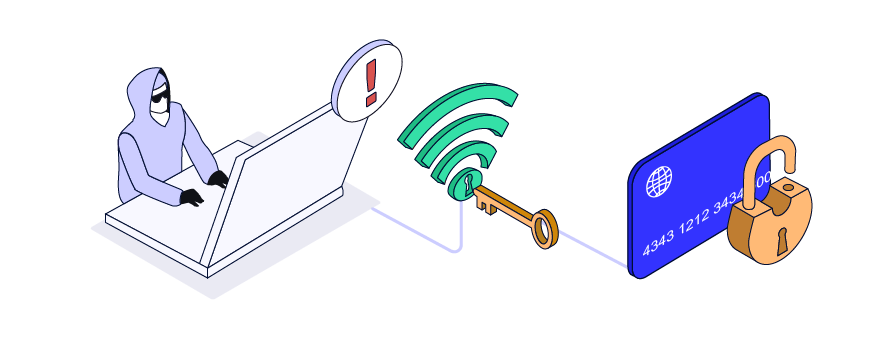
The online world can be an amazing place to meet new people, learn new skills, and so much more. Almost everything can be done online these days, from buying your groceries to meeting with your doctor. So it only makes sense that criminals have adapted to these technological changes as well. Enter stage left: the dark web.
We hear about the dark web all the time, but very few of us know exactly how dangerous it can be if you aren’t protecting yourself online. Keep reading to find out what exactly the dark web is, and how you can protect your information from ending up there.
How Does it Work?

The dark web cannot be accessed by traditional browsers and is estimated to take up about 5% of the internet. To access the dark web, you need a specific browser to do so- Tor. Tor routes your browser through a series of different proxies to render your IP address untraceable.
If you think that the dark web is this organized website of crime, think again. It is a chaotic, unorganized mess that can be extremely difficult to navigate without substantial know-how. Luckily for you, you don’t need to be an expert on the dark web to protect yourself from the dangers of it.
There are several simple things that a person can do to protect their online activity. Password keepers, such as this password manager for Windows 10, are a simple, yet effective way to give your accounts an extra layer of security.
How the Dark Web Threatens Online Security?

I know what you’re thinking. When most people think of the dark web they usually think it’s all about drugs, human trafficking, and buying kidneys. In reality, the most prominent threat on the dark web is the likelihood of your private information being sold.
Almost 60% of the content found on the dark web could potentially harm enterprises. You can find anything from stolen credit card numbers to hacked Netflix accounts all available for purchase. These purchases are made with a type of cryptocurrency called Bitcoin. Bitcoin protects the anonymity of the buyer, making them more likely to make illegal purchases. You can even use bitcoin on the dark web to hire someone to hack into computers for you.
So with all of these potential online threats, how can we keep ourselves and our online information safe? The good news is that with minimal effort you can do a lot to protect your online integrity.
Making a Hacker’s Job Harder

Reusing the same password over and over again is one of the easiest ways to have your accounts breached. After all, all a hacker would need to do to gain access to all of your accounts is successfully hack into one. Use unique passwords for every account to make it harder for hackers to breach your data.
We know that it can be hard to keep track of dozens of passwords, depending on how plugged in you are to the online world. This is, after all, one of the most common reasons people reuse their passwords. We recommend using a password manager to help you with this problem.
All good password managers store your passwords and account information inside of a ‘vault’. These vaults are end-to-end encrypted and are only able to be unlocked by your master password. This means that not even the service provider can view your information.
Most third-party password managers also help you to create unique and effective passwords that can vary in length and characters, depending on your needs. But keep in mind, not all password managers are created equally.
Built-in password keepers work well with their individual browsers however, they don’t allow you to customize your passwords and you can’t use them across different browsers or devices. For this reason alone, we recommend getting a reliable third-party manager that can sync seamlessly across your devices.
Conclusion

The Internet is a wonderful, and sometimes scary, place. The leaps and bounds in technology have made us more connected to each other and the world than ever before.
It should come as no surprise that dishonest people have found a way to use the internet to their advantage. Hackers have become more and more prevalent as technology has continued to advance.
The best way to protect your information online is to be smart. Don’t reuse your passwords, and always check the legitimacy of the websites you are using before divulging any personal details. If you’re ever asked to click a link to change any account details, always go straight to the company website or give them a call before doing so.
These simple steps will do a lot in terms of protecting your online data, and keeping your computer free from hackers.




